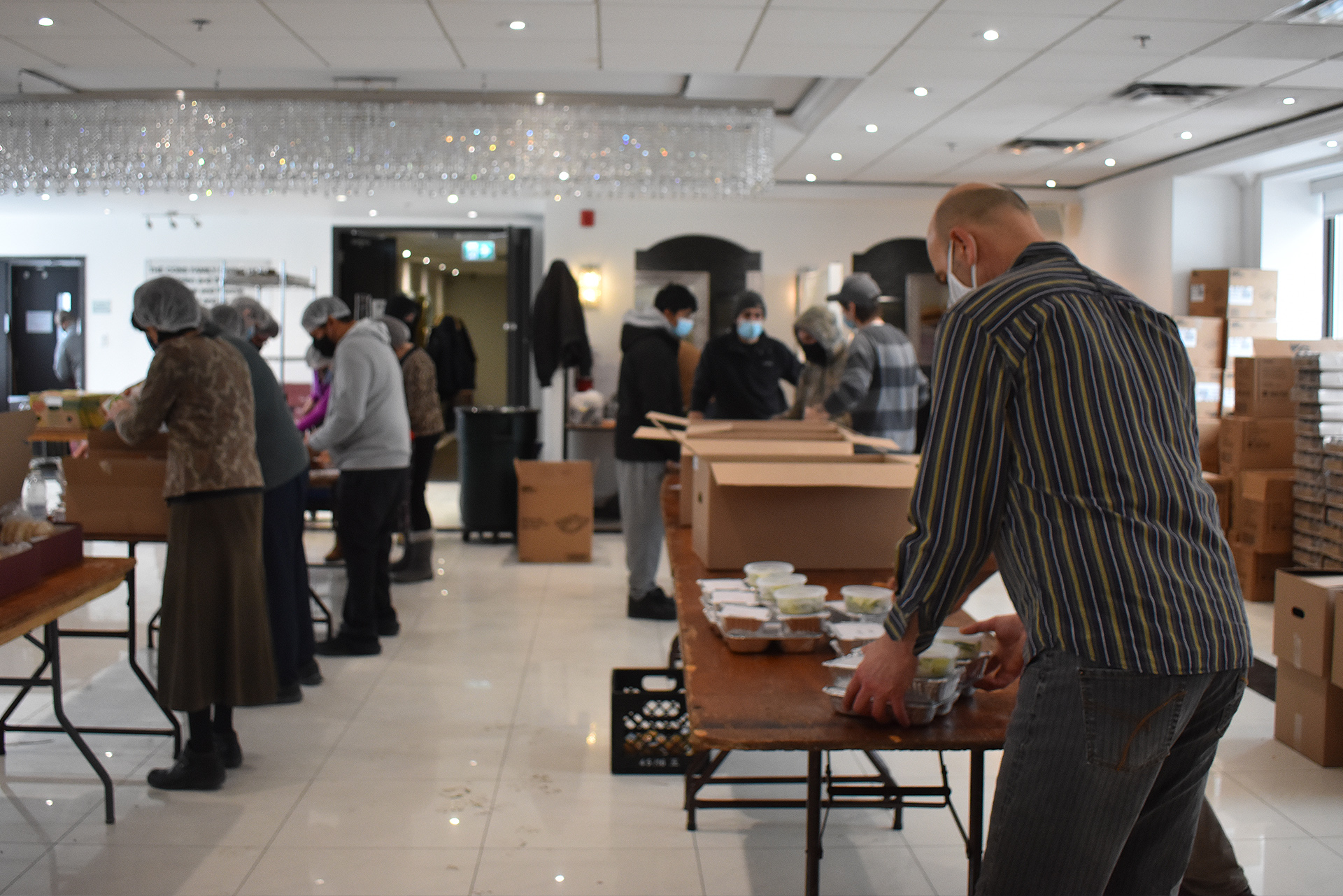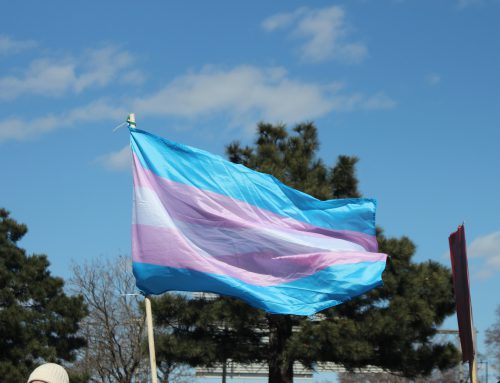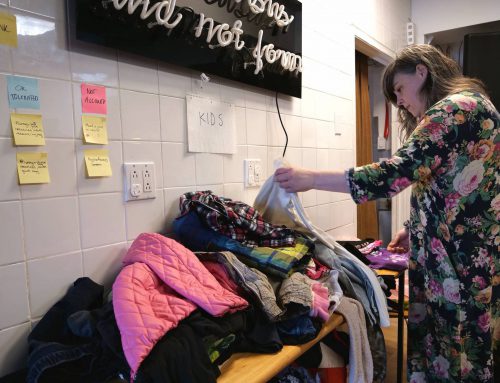BY Henry Lovgren & Louis Pavlakos
Since the pandemic began, nearly one in seven Canadians have struggled with food insecurity. A similar report released in 2017 reported a rate of one in ten. Montreal is not immune from the crisis. According to Centraide, more than 28 per cent of Montrealers struggled with getting food after the lockdowns began.
Last August, Leah Larsly, who works a full-time job, decided to take matters into her own hands and created a Facebook group dedicated to providing mutual aid. The group, Montrealers Helping Montrealers, started out with only a few members and served as a meeting place for community members to trade goods, post about jobs, and offer services.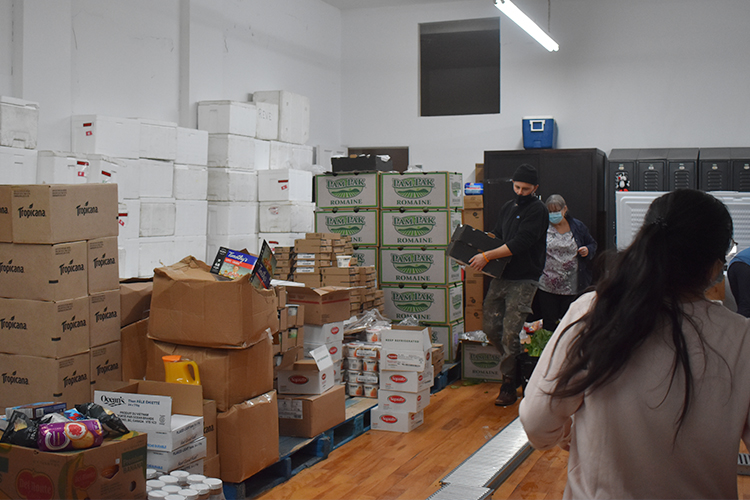
Volunteers of Reseau D’Entraide de Verdun bring out boxes of food to a truck heading to CARE Montreal. Photo by Louis Pavlakos.
“My entire goal was to create a group built on kindness,” Larsly says.
A look through the Facebook group shows members offering and requesting food aid. In one post, a group member offers to deliver coffee and clothing to homeless Montrealers in an effort to “warm up some hearts.”
Today, the group has reached more than 20,000 members. Larsly is no longer the sole administrator, with dozens of deputized moderators working alongside her. As its membership expanded, so did the group’s purpose.
Today, a look at the page shows a remarkable collection of posts from users offering and requesting support ranging from money for rent to tutoring services.
“At this point, the group is more than for one purpose,” says Larsly. “‘It’s a place for Montrealers to get together and help one another during Covid and hopefully beyond.”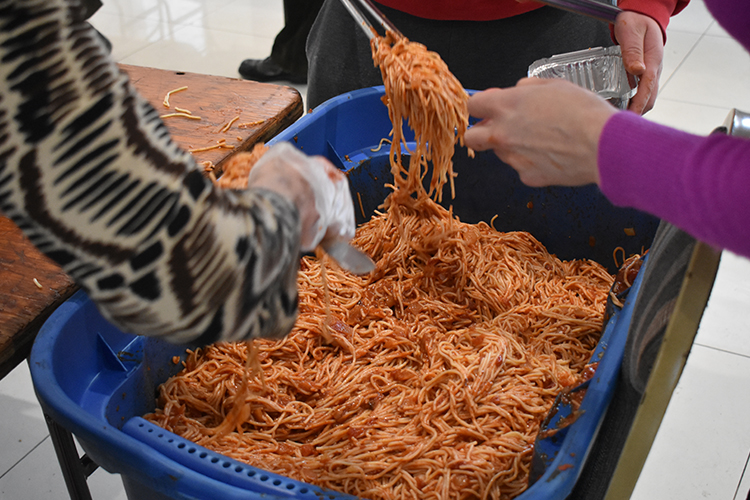
A group of volunteers at MADA pours spaghetti into containers to give away. Photo by Louis Pavlakos.
Offline, other organizations like the MADA Community Centre in Cote-des-Neiges work at addressing food scarcity using traditional tactics. Since the pandemic, requests for meals increased by 5,000 meals a week. In a discrete building off Decarie Boulevard, dozens of volunteers and employees assemble daily to provide food, clothing, and other resources to struggling community members.
Steven Schachter started volunteering at MADA Community Centre a decade ago. The organization is a considerable operation with dozens of volunteers working in assembly line conditions to prepare meal boxes for Shabbat—the Jewish day of rest. After retiring from his psychology practice, Schacter started volunteering with his son.
Now, Schacter is a constant figure at the community centre, directing a group of volunteers who prepare nearly 12,000 meals each week. “We have food shipments and donations around the clock, the work never ends,” says Schacter.
“MADA is unique in the people that we serve and the volunteers we get,” says Schacter. A visit inside the preparation hall illustrates his point with the sounds of numerous languages spoken by the diverse pool of volunteers.
However, restaurants that shuttered their doors because of the virus now can no longer donate food to community centers like MADA. Instead, Schacter said the community is relying more on individual donations to help in procuring food for the weekly demand. With more businesses closed, and community members requiring more assistance, MADA operates with more volunteers to meet growing demands. “The community is really coming together, it’s remarkable,” says Schacter.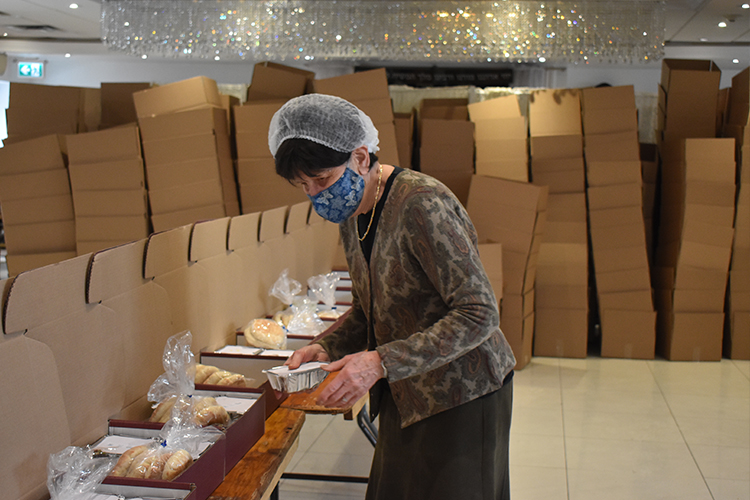
A volunteer at MADA packs snacks for their weekly meal distribution. Photo by Louis Pavlakos.
Another Jewish organization, Federation CJA, also works to alleviate the pressures caused by COVID-19 including food insecurity.
Since COVID-19, there has been an 80 per cent increase in requests for help from families struggling financially. Amid the pandemic, the federation has made efforts to collaborate with grocery stores like IGA in Cote-Saint-Luc to provide kosher food and free groceries to members who really need it.
“People are struggling to get groceries, they simply can’t afford it,” says Jonathan Levine, manager of the Concordia campus department.
Le Pirate Vert Recycles Food to Feed Families. Video by Louis Pavlakos.
According to the Moisson Montreal food bank, agencies requested 40 per cent more food on a monthly basis once the pandemic began. Le Pirate Vert has a unique approach to the problem. Founded by Rais Zaidi, Le Pirate Vert operates out of Verdun and Hochelaga.
Le Pirate Vert started nearly a decade ago with Zaidi focused on reclaiming food. In 2011, Zaidi began dumpster diving, and his hobby gradually developed into food recycling. The process involves assessing the food’s edibility. “We need to keep an eye on the degree of rottenness,” says Zaidi.
Over the years, Zaidi’s operation evolved as his team collaborated with community members to set up locations for food distribution. Zaidi says that his initiative will keep developing as long as there is a need.
“No one should be hungry, and we work to prevent that,” he says.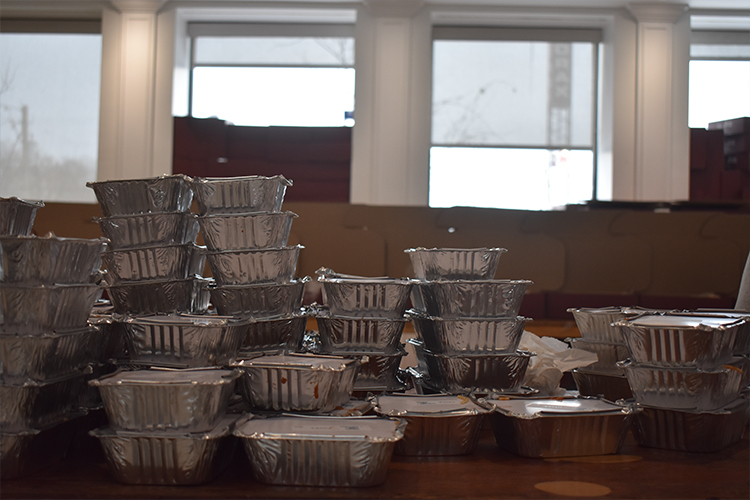
Meals prepared for distribution at MADA Community Centre. Photo by Henry Lovgren.
The work of Montrealers Helping Montrealers, MADA Community Centre, and Le Pirate Vert is far from over. A report released in 2019 by Moisson Montreal—one of the city’s largest food banks and distributors of food—found that more than 500,000 food requests were issued in the month of March. Since then, monthly food requests increased by 40 per cent since the start of the pandemic. The organization’s Director General, Richard Daneau, said in a statement, “this emergency situation calls for emergency measures.”
From the packing rooms of MADA to the digital world of Montrears Helping Montrealers, the city’s community is unquestionably striving to alleviate food insecurity. With varied approaches and platforms, different organizations and individuals continue to operate despite the uncertainty.
